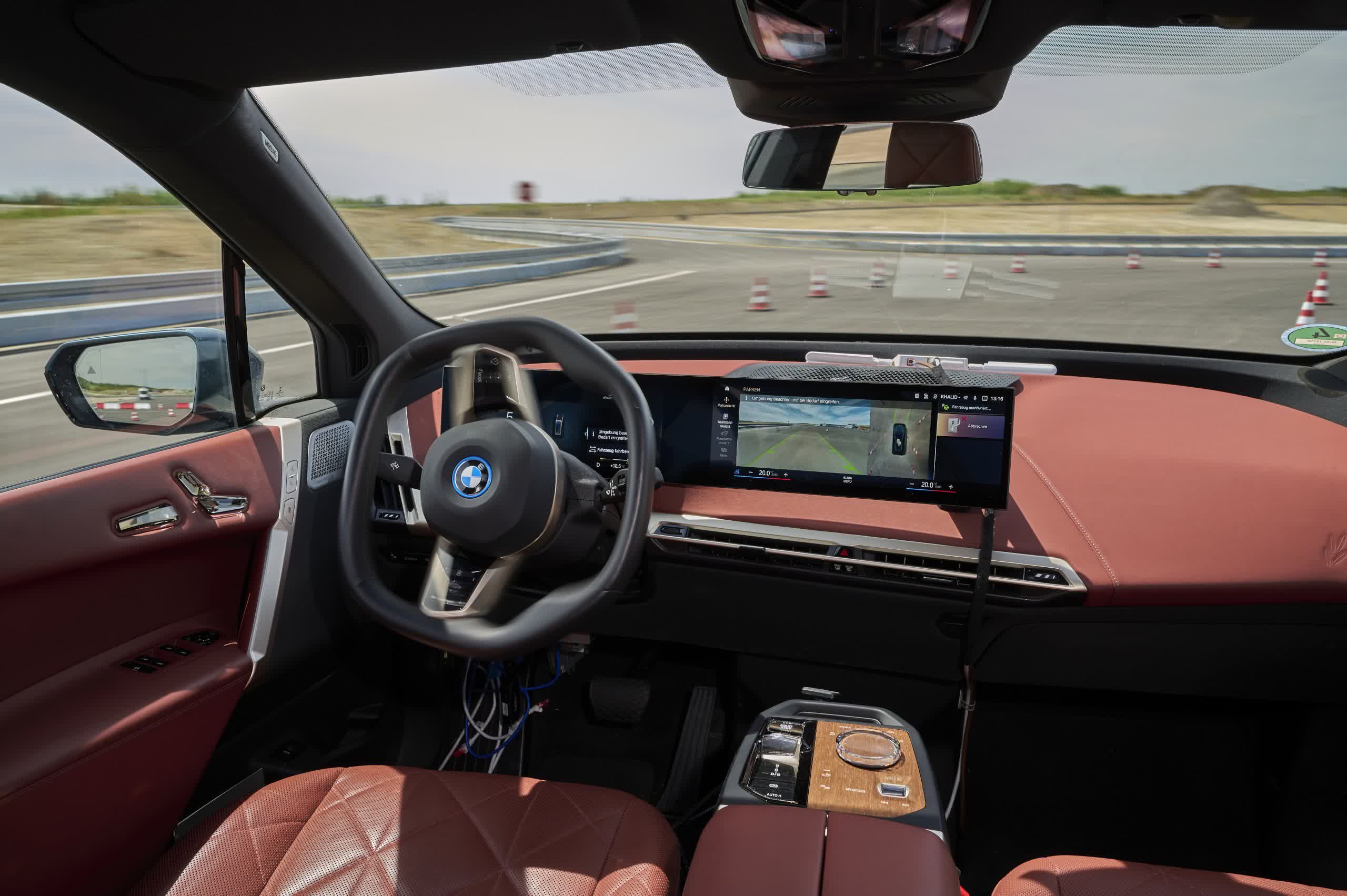Through the looking glass: Fully autonomous driving and EVs are currently the center of the conversation on automotive technology, but BMW is testing a broad range of innovations. One involves a middle ground between self-driving cars and traditional driving that could increase logistical flexibility for customers.
German automaker BMW allowed CES 2024 attendees to demo a system for remotely driving vehicles. The company positions the technology as a tele-operated valet parking system, but other uses could emerge.
Customers would first park their cars in a pre-defined area. Pressing a button in a mobile app then signals a remote valet to take control. The owner can use the app again to tell the valet to retrieve the car when ready to leave.
The remote operator sits in a driving rig with a steering wheel surrounded by monitors resembling a high-end PC gaming setup. The CES demo controlled the vehicles from nearby, but BMW claims the system could work at greater distances. Long-distance operations could increase the number of available valets at any given time.
One advantage of the concept is that it's entirely based on existing technology. The remote rig connects to an array of cameras on the vehicle and only requires a solid wireless signal. The sensors, precise road infrastructure, and other materials associated with fully autonomous cars are unnecessary.
However, some steps in the remote valet process involve self-driving functionality. For example, the system can automatically park a car after the driver approaches a parking space. Furthermore, it automatically controls the vehicle's top speed based on its surroundings, dropping to around two miles per hour if an object suddenly approaches.
While BMW hasn't finalized the commercialization of its remote parking service, the technology could apply to situations aside from valet. When vehicles require transport in places where self-driving systems can't operate, remote driving might prove easier than getting a human driver on-site.
If remote driving and valet parking catch on, they could create a new work-from-home job where an employee or contractor sits in a driving sim rig all day, taking transportation requests from around the globe. Imagine Uber driving becoming a remote job.
Sony also demonstrated some remote driving magic at CES by piloting an EV it has been collaborating on using a PlayStation 5 controller. The production model won't include the functionality, but the prospect of manipulating vehicles with alternate control methods raises intriguing possibilities.


